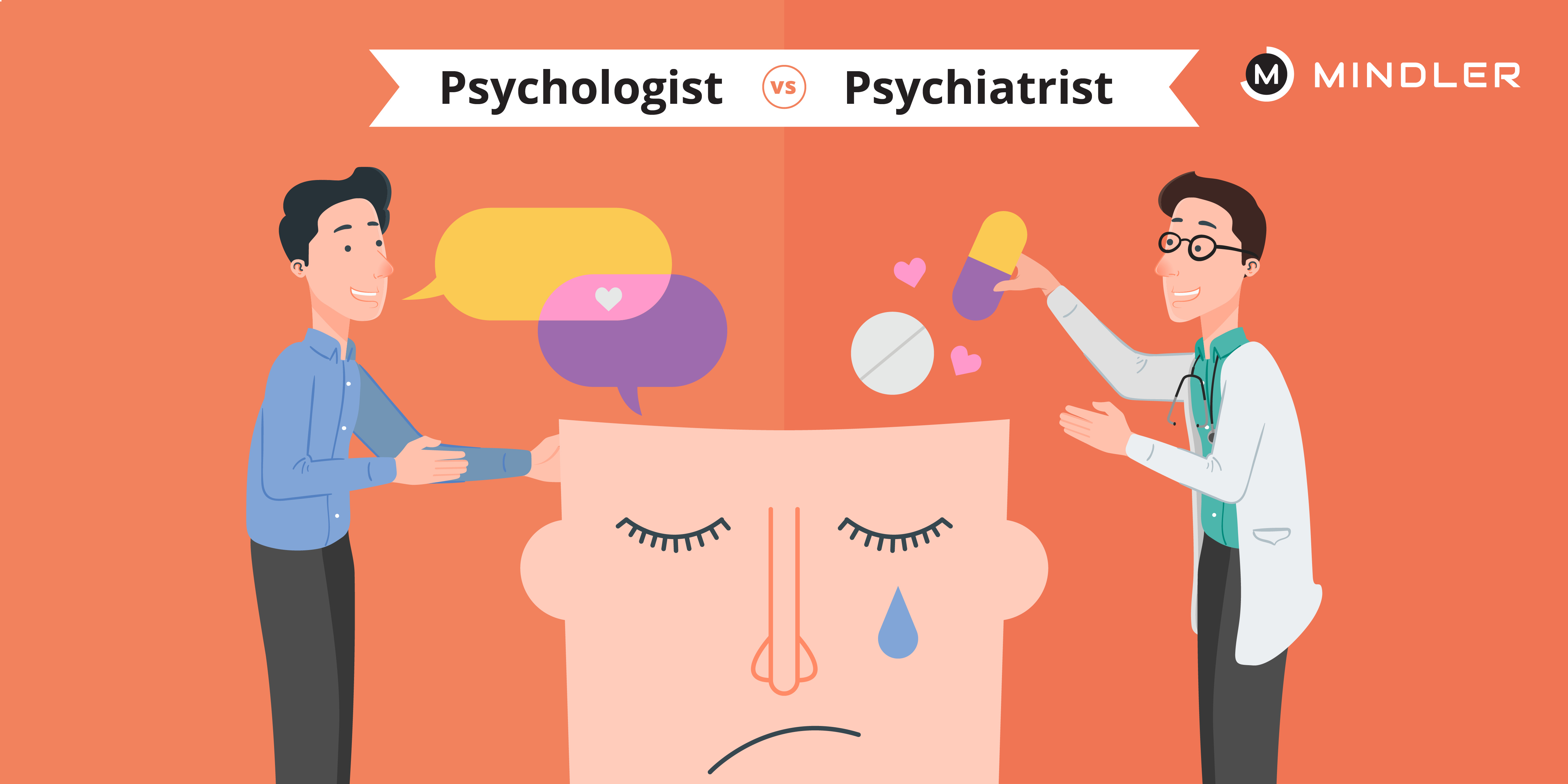Transform Your Life with Professional Guidance from Psychologist Kew Melbourne
Transform Your Life with Professional Guidance from Psychologist Kew Melbourne
Blog Article
Medical Psycho Therapists Vs Psychiatrists: Secret Distinctions You Must Know
The difference in between scientific psychologists and psychiatrists is essential for people seeking mental health and wellness care, as each specialist offers distinct know-how formed by their academic histories and treatment techniques. While professional psycho therapists concentrate mainly on psychotherapy to attend to emotional and psychological worries, psychiatrists, as clinical doctors, bring a medicinal viewpoint to therapy, commonly intertwining medicine with healing methods. This distinction raises important questions concerning which specialist might be ideal matched for various mental health and wellness demands. As we discover these key distinctions additionally, the effects for treatment selections end up being progressively considerable.
Educational History
Several people seeking psychological wellness services may question the differences in academic histories between clinical psycho therapists and psychiatrists (clinical psychologists kew Melbourne). The differences are important and significant for comprehending the roles each expert plays in mental healthcare

In contrast, psychiatrists are clinical doctors (M.D. or D.O.) who complete a four-year clinical degree adhered to by a residency in psychiatry, which lasts an added 4 years. Their medical training equips them to understand the biological facets of psychological disorders, enabling them to suggest drugs and offer a clinical point of view on therapy.
These varying educational courses highlight the unique knowledge each professional gives the area, forming their approaches to treatment, diagnosis, and individual care (clinical psychologists kew Melbourne). Comprehending these distinctions is important for people navigating the psychological health and wellness system

Therapy Methods
Diverse therapy approaches define the techniques of professional psychologists and psychiatrists, mirroring their distinct training and areas of competence. Professional psycho therapists primarily use psychiatric therapy, utilizing methods such as cognitive-behavioral therapy (CBT), dialectical actions treatment (DBT), and psychodynamic therapy. Their emphasis is on emotional and psychological evaluation, treatment, and the growth of dealing approaches to attend to various psychological health conditions. They may function with individuals, teams, or pairs, tailoring their restorative approaches to the details demands of their clients.
On the other hand, psychiatrists are distinctively qualified to diagnose and deal with psychological wellness conditions through a mix of psychiatric therapy and pharmacotherapy. Their medical training enables them to recommend drugs, which can be essential for handling conditions such as schizophrenia, bipolar disorder, or severe anxiety. Psychoanalysts usually take an even more biomedical method, taking into consideration the organic, psychological, and social elements affecting an individual's psychological health and wellness.

Role in Mental Healthcare
The duties of scientific psychologists and psychiatrists in psychological healthcare are corresponding, mirroring their unique training and competence. Scientific psycho therapists primarily concentrate on the analysis, medical diagnosis, and treatment of psychological problems through numerous therapeutic modalities, including cognitive-behavioral treatment (CBT), interpersonal treatment, and psychoeducation. Their training highlights recognizing human behavior, psychological performance, and the healing procedure, enabling them to offer evidence-based interventions customized to specific needs.
On the other hand, psychiatrists are clinical doctors who specialize in the diagnosis and treatment of psychological health problems, frequently using a biomedical strategy. They can recommend drugs to handle psychological signs and symptoms and are trained to consider the physical facets of psychological health, such as neurobiology and pharmacology. This medical his explanation perspective enables psychoanalysts to address intricate Home Page instances that may need a combination of medication management and psychiatric therapy.
With each other, professional psycho therapists and psychiatrists develop a detailed mental healthcare structure, attending to both psychological and clinical demands. Cooperation between these specialists makes certain that individuals obtain all natural treatment, eventually enhancing therapy outcomes and enhancing the lifestyle for people experiencing psychological health and wellness challenges.
Sorts Of Disorders Treated
While both professional psycho therapists and psychiatrists attend to a large range of mental health problems, their techniques and areas of competence typically dictate the certain problems they treat. Scientific psychologists largely concentrate on the evaluation and therapy of emotional, behavior, and cognitive problems through psychotherapy. They often collaborate with individuals experiencing anxiety problems, depression, trauma (PTSD), obsessive-compulsive disorder (OCD), and different character conditions. Their restorative strategies include cognitive-behavioral treatment, dialectical behavior modification, and other evidence-based methods.
On the other hand, psychiatrists are medical physicians who can suggest drugs and have specialized training in the biological elements of psychological health and wellness. They frequently take care of a lot more complex psychological problems that might need medicinal intervention, such as schizophrenia, bipolar illness, serious anxiety, and compound utilize problems. Psychiatrists may integrate drug management with psychotherapy yet usually concentrate on the medical and biochemical elements of psychological wellness problems.
Understanding these distinctions can help people look for the appropriate treatment customized to their particular mental wellness demands, guaranteeing they get one of the most effective treatment for their problems.
Insurance Coverage and Expense Considerations
Browsing insurance policy and price factors to consider is a vital aspect for individuals seeking psychological wellness solutions from clinical psycho therapists or psychoanalysts. Both professions might accept numerous insurance policy strategies, yet the degree of protection can vary dramatically. Psychoanalysts, that often recommend drug, might have different invoicing methods contrasted to clinical psycho therapists, who typically concentrate on psychotherapy.
Insurance coverage repayment for psychological services could be more favorable due to the clinical nature of their practice. Clients may come across higher co-pays or deductibles when consulting a psychiatrist. On the other hand, scientific psychologists may supply solutions billed under mental health and wellness benefits, which could cause reduced out-of-pocket costs, depending on the insurance firm's policy.
In addition, individuals ought to take into consideration the frequency and period of therapy sessions when assessing costs. While psychiatrists could offer much shorter, medication-focused gos to, medical Clicking Here psychologists typically involve in longer sessions committed to restorative techniques.
Ultimately, comprehending the certain terms of one's insurance strategy, including network schedule, insurance coverage limitations, and pre-authorization demands, is crucial. Patients are encouraged to call their insurance coverage provider to clarify advantages and explore choices for budget friendly mental healthcare.
Verdict
In recap, the distinctions between clinical psychologists and psychoanalysts are important for informed decisions regarding mental health and wellness treatment. Educational history, therapy techniques, and duties in psychological health considerably differ in between the two professions.
The difference in between medical psychologists and psychoanalysts is essential for individuals looking for psychological health treatment, as each professional deals unique expertise shaped by their instructional histories and treatment techniques.The duties of scientific psycho therapists and psychoanalysts in mental health treatment are complementary, showing their distinct training and expertise.While both clinical psycho therapists and psychoanalysts attend to a large range of psychological wellness conditions, their methods and areas of knowledge usually determine the details problems they treat.Navigating insurance and price factors to consider is a critical element for people seeking mental wellness services from medical psycho therapists or psychoanalysts.In summary, the differences between professional psychologists and psychiatrists are essential for notified choices regarding mental wellness treatment.
Report this page